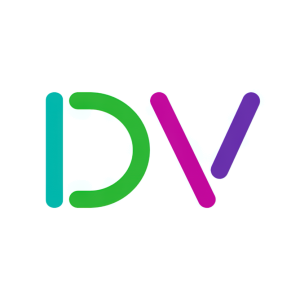DoubleVerify Enhances Proprietary ‘Made for Advertising’ (MFA) Measurement & Protection Solution with Tiered Brand Suitability Categories
New AI-powered tiered categories allow for even more nuanced MFA content monitoring and protection, serving to boost campaign performance and optimize digital investments
Unlike ad fraud, MFA inventory is not inherently invalid, and many advertisers may opt to run ads across MFA sites. Marketers need tools to help determine whether specific MFA sites align with their brand values and advertising goals. DV’s tiered MFA categories give brands enhanced granularity and control to determine the level of protection that best suits their requirements.
"DV’s AI-powered MFA brand suitability categories offer marketers a groundbreaking, nuanced approach to effectively tackle MFA challenges,” said Mark Zagorski, CEO of DoubleVerify. “With this launch, we offer the most expansive, scaled MFA solution in the market today. Our MFA controls enable brands to boost campaign performance and optimize media investments, by carefully balancing brand protection and campaign scale based on their specific requirements.”
DV’s tiered MFA brand suitability categories use a proprietary analysis process that leverages a unique blend of human and AI-based auditing to identify MFA sites at scale. MFA sites are identified by analyzing several factors across their ad monetization activities, ad traffic sources and approach to content creation. Based on the characteristics of an MFA site, it is then assigned to one of three DV brand suitability tiers:
- MFA High: Identifies sites exhibiting the most extreme MFA content or characteristics, including, but not limited to, significant ad density relative to page content, a predominant dependance on paid traffic sources with little to no organic traffic, and an average ad intensity – a measure of the viewable time duration of an ad – that is significantly lower than the DV benchmark.
- MFA Medium: Identifies sites with varying degrees of MFA behavior. For example, a site might employ high ad density relative to page content, but the average ad intensity might be near the DV benchmark.
- MFA Low: Covers sites or sections with a blend of MFA and non-MFA content – for example, sites where only a section or a subdomain exhibits MFA content or characteristics.
DV’s approach allows for the deepest and most nuanced level of analysis, preventing miscategorization and false positives. For example, a website may feature a significant number of ads, while still registering high rates of direct and search-enabled traffic. In this instance, the publisher would not meet DV’s definition of an MFA website.
"The introduction of our MFA brand suitability categories is a critical development for the advertising industry,” said Jack Smith, Chief Innovation Officer at DoubleVerify. “Our goal is to equip marketers with tools for nuanced measurement and management of MFA content, significantly enhancing precise brand protection. This innovation ensures that marketing efforts are strategically aligned with brand goals and values, fostering deeper consumer engagement and trust, while also optimizing investments and performance."
With this launch, DV now offers one of the most robust and granular toolkits in the industry for MFA classification, measurement, and protection. DV's tiered MFA categories will soon be integrated into DV Authentic Brand Suitability (ABS) for pre-bid avoidance. In the interim, DV can provide a curated MFA exclusion list for programmatic buyers.
DV’s tiered MFA categories seamlessly integrate into an advertiser's brand safety and suitability profile for post-bid measurement and monitoring through DV Pinnacle®. The new offering bolsters DV's controls in response to the surge in online MFA content, building on its September 2023 beta release.
About DoubleVerify
DoubleVerify (“DV”) (NYSE: DV) is the industry’s leading media effectiveness platform that leverages AI to drive superior outcomes for global brands. By creating more effective, transparent ad transactions, we make the digital advertising ecosystem stronger, safer and more secure, thereby preserving the fair value exchange between buyers and sellers of digital media. Learn more at www.doubleverify.com.
View source version on businesswire.com: https://www.businesswire.com/news/home/20240213863600/en/
Media:
Chris Harihar
chris@crenshawcomm.com
Source: DoubleVerify








